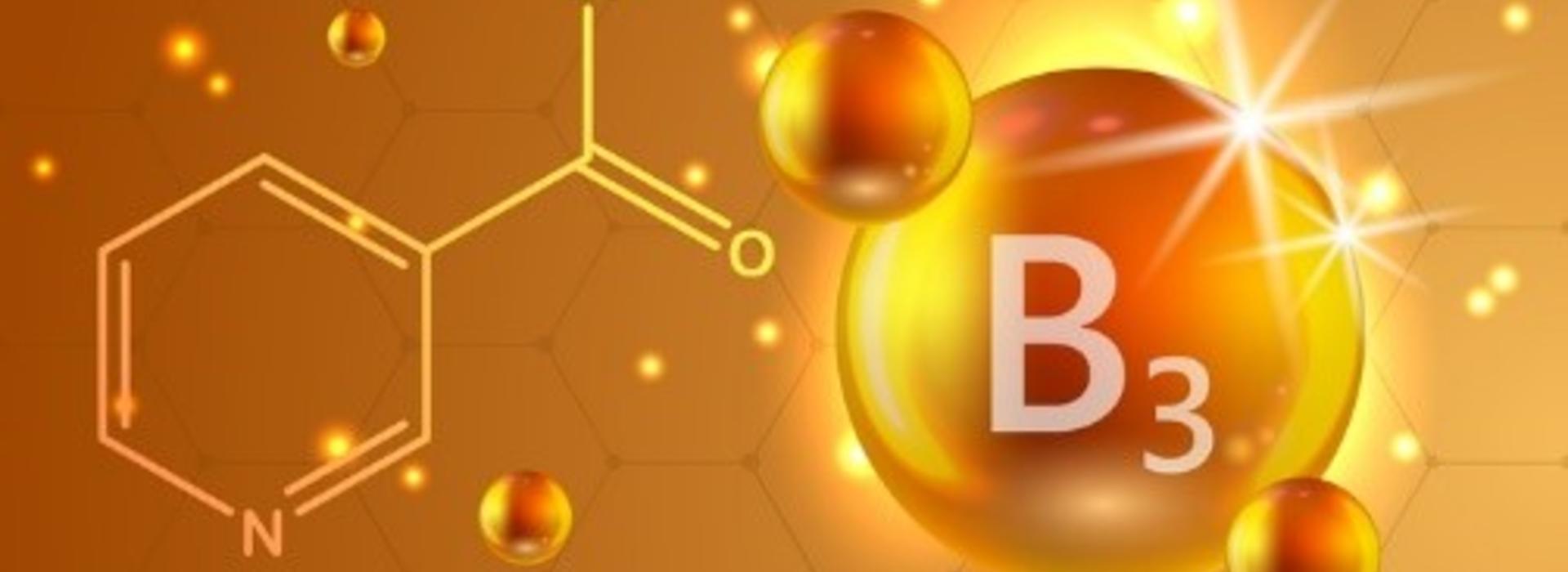
Vitamin B3 derivative Enhances Killer Cell Function to Induce Remissions in Cancer Patients
Non-Hodgkin's lymphoma (NHL) is a type of cancer that begins in your lymphatic system, which is part of your body's germ-fighting immune system. In NHL, white blood cells called lymphocytes grow abnormally and can form growths called tumors throughout the body. NHL is a general category of lymphoma. There are many subtypes that fall in this category. Diffuse large B-cell lymphoma and follicular lymphoma are among the most common subtypes. Advances in diagnosis and treatment of NHL have helped improve the prognosis for people with this disease.
Natural killer (NK) cells are lymphocytes that participate in tumor immunosurveillance and control of microbial infections. Our team at University of Minnesota was among the first groups worldwide to launch the clinical trials using NK cell infusion to treat cancer.
The NK cells from healthy related or unrelated donors are among the most convenient sources of adoptive cell therapy. NK cells have an inherent ability to recognize cancers, mediate immune functions of killing and communication, and do not induce graft-versus-host disease, cytokine release syndrome, or immune effector cell–associated neurotoxicity syndrome. NK cells can be obtained from blood or cord blood or be derived from a stem cells and may be maintained and cryopreserved for off-the-shelf availability. The first wave of point-of-care NK cell therapies led to the current allogeneic NK cell products being investigated in clinical trials with promising preliminary results. Basic advances in NK cell biology and cellular engineering have led to new translational strategies to block inhibition, enhance and broaden target cell recognition, optimize functional persistence, and provide stealth from patients’ immunity.
Translation is the progression of turning observations in the laboratory, clinic and community into interventions that increase the health of individuals and the public. From diagnostics and therapeutics to medical procedures and behavioral changes. Translational science is the field of investigation concentrated on understanding the scientific and operational principles underlying each step of the translational process. Translational research seeks to produce more significant, applicable results that directly benefit human health. The goal of translational research is to move basic science discoveries quickly and efficiently into practice.
Allogeneic, or universal, cell therapies rely on a single source of cells to treat many patients. Cells are collected from a donor sample to create a master cell bank (MCB). The MCB is then used as the source to create cell populations that are processed according to the demands of the specific therapy. The final cell populations are then used to treat multiple patients. Allogeneic therapies are more adept at satisfying “off-the-shelf” supply models, where emergency treatment might be required. Allogeneic therapies increase the risk of eliciting an immune response within a patient, and immunosuppressive therapies are sometimes administered in combination with allogeneic products.
Nicotinamide (NAM), also known as niacinamide, is a water-soluble amide form of niacin or vitamin B3. It is found in foods such as fish, poultry, eggs, and cereal grains. It is also marketed as a dietary supplement, and as a non-flushing form of niacin. Nicotinamide is chemically part of the coenzymes nicotinamide adenine dinucleotide NAD+ and NADH, used in oxidation-reduction reactions in the body. Among these activities is the production of adenosine triphosphate (ATP), which fuels cellular metabolic activities.
In a recent study published in Science Translational Medicine, high concentrations of Nicotinamide (NAM) augmented the function of healthy donor NK cells and resulting product (named GDA-201) was resistant against cellular stress and yield capacity to migrate to tumor sites. GDA-201 yields remissions in patients with relapsed/refractory non-Hodgkin lymphoma. Drs. Veronika Bachanova and Frank Cichocki from the University of Minnesota Division of Hematology, Oncology, and Transplantation along with fellow colleagues have demonstrated that NK cells cultured ex vivo with interleukin-15 (IL-15) and NAM exhibited stable induction of l-selectin (CD62L), a lymphocyte adhesion molecule important for lymph node homing. Prior experience with haploidentical, or half-matched donor NK cells, rituximab, and IL-2 given to patients with NHL has been shown to be safe and well tolerated. However, the objective response rate was low, suggesting that further strategies to improve NK cell persistence and function are needed. Drs. Bachanova, Cichocki and colleagues have shown that supplementation with NAM during ex vivo NK cell culture led to improved persistence and antitumor functions. In a phase 1 trial of nicotinamide-expanded allogeneic NK cells, monoclonal antibodies, and IL2, Drs. Bachanova, Cichocki, and colleagues noted that 11 of 19 patients with NHL demonstrated complete response. A larger phase 2 study testing a cryopreserved formulation for the treatment of aggressive and indolent NHL is underway to validate and lengthen the present findings.
Veronika Bachanova, MD, PhD clinical practice centers on patients with blood cancers such as lymphoma and leukemia. “I care deeply for my patients and strive to apply the most effective and promising treatment options and methods,” said Dr. Bachanova. “With the team at Bone Marrow and Cell Therapy Program at the University of Minnesota Medical Center, we provide access to hematopoietic cell transplantation, immunotherapies, and novel cellular therapies. In my clinical practice, every day I witness the life-saving potential of cell therapy and the capacity of the immune system to eliminate cancer. As a result, my clinical research is focused on the design and development of new approaches which utilize the immune system to attack cancer cells. Currently, I direct the team which is focused on the emerging field of CAR T-cell therapies and Natural Killer cellular therapies for the treatment of lymphoma and myeloma.”
Frank Cichocki, PhD researches basic human natural killer (NK) cell biology and NK cell immunotherapy in the context of hematopoietic cell transplantation. “Our group has a long-standing interest in the development and differentiation of human natural killer (NK) cells,” said Dr. Cichocki. “NK cells represent a lineage of cytotoxic lymphocytes that play key roles in immunosurveillance of virally infected and transformed cells. Our current work is focused on the molecular mechanisms controlling the differentiation, expansion, signaling and function of unique, heterogeneous subsets of adaptive NK cells that arise in response to cytomegalovirus (CMV) infection in healthy individuals and CMV reactivation in hematopoietic cell transplant (HCT) recipients. Our group is also actively exploring pathways important for the efficient generation of highly functional NK cells from induced pluripotent stem cells.”
Patients with refractory NHL have poor prognoses, and cell therapy is a promising approach to yield durable remissions. This phase 1 study explored the safety and feasibility of ex vivo HLA-haploidentical or HLA-mismatched NAM-expanded NK cell adoptive therapy (GDA-201) after lymphodepleting chemotherapy and in combination with targeted monoclonal antibodies, followed by a short course of IL-2 to facilitate NK cell survival and expansion in vivo. In the study, the patients received three doses of rituximab and lymphodepleting chemotherapy consisting of cyclophosphamide and fludarabine followed by GDA-201 and subcutaneous doses of IL-2 at days 0, 2, and 4 to support NK cell survival in vivo. Sixteen patients received the maximum target dose of 2 × 108 cells. Once the phase 1 study was completed, enrollment continued in an expansion phase until 10 patients with NHL and 10 patients with multiple myeloma (MM), including any patients treated at the maximum tolerated dose (MTD) during the phase 1 trial, were treated at the highest tolerated GDA-201 dose level. Each disease group accrued independently, with enrollment closed once all 10 evaluable patients were enrolled at the MTD. This trial showed that GDA-201 can be administered safely without immune-mediated toxicities or severe cytopenia. The development of better xenogeneic models will be necessary to study human lymphocyte homing. Future prospective clinical studies designed to image various immune populations before and after adoptive transfer in responding and nonresponding patients will be needed to determine the role of NK cells more definitively in recruiting T cells to the tumor site.
Dean Patterson, Editor
Division of Hematology, Oncology, and Transplantation
References:
Cichocki F, Zhang B, Wu CY, Chiu E, Day A, O'Connor RS, Yackoubov D, Simantov R, McKenna DH, Cao Q, Defor TE, Janakiram M, Wangen R, Cayci Z, Snyder N, Kumar A, Grzywacz B, Hwang J, Geffen Y, Miller JS, Maakaron J, Bachanova V. Nicotinamide enhances natural killer cell function and yields remissions in patients with non-Hodgkin lymphoma. Sci Transl Med. 2023 Jul 19;15(705):eade3341. doi: 10.1126/scitranslmed.ade3341. Epub 2023 Jul 19. PMID: 37467318.
Karantalis V, Schulman IH, Balkan W, Hare JM. Allogeneic cell therapy: a new paradigm in therapeutics. Circ Res. 2015 Jan 2;116(1):12-5. doi: 10.1161/CIRCRESAHA.114.305495. PMID: 25552688; PMCID: PMC4411634.



